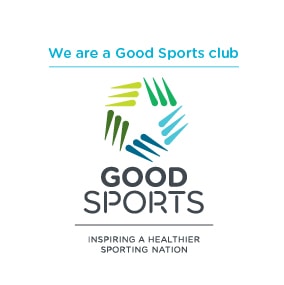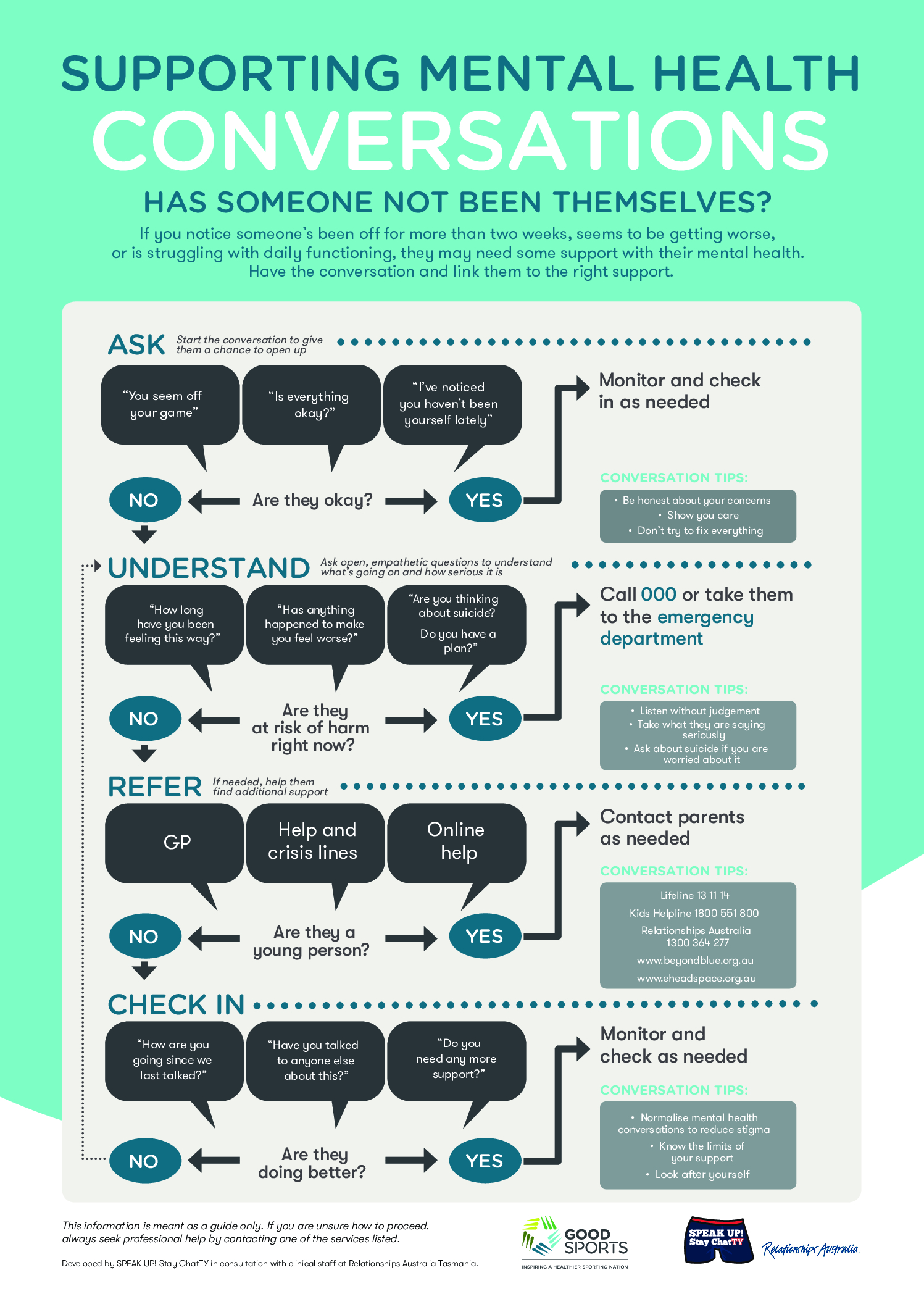Mental and physical health go hand-in-hand.
Eating well and being active is important in achieving a good sporting performance. But it’s important to know that your mental health is just as important as your physical health. Learning skills to be resilient and maintain positive mental health will help you perform at your best.
Here are some tips for building good mental health you can try now:
Exercise and stay healthy: Exercise has been shown to increase wellbeing as well as reduce symptoms of depression and anxiety. Good physical health is related to better mental health so a healthy diet, avoiding excess alcohol or drugs, getting a good night’s sleep, and regular check ups with the doctor can all help.
Develop gratitude: Count your blessings. Try keeping a gratitude journal and write down 3 positive things each day. This can lead to increased wellbeing.
Create flow: Flow is the state of being so highly involved in an enjoyable activity that you lose track of time. This usually happens when the level of challenge is about right for your level of skill. Flow can happen during work, hobbies, creative arts or sports.
Give to others: Making a contribution to the community, however small, increases social wellbeing. Many people feel a sense of contributing through meaningful work, but this could also mean volunteering, helping a neighbour or performing small acts of kindness. Take some time to do the things you really enjoy. Pleasant events can lead to positive emotions that can cancel out negative feelings
Seek help: If you are struggling to feel happy, cope with everyday life, find meaning or feel connected to others, see your doctor or a mental health professional.
(*Source: https://www.healthdirect.gov.au/tips-for-good-mental-health)
Not sure what to do next?
If you or someone you know are finding it difficult to manage mental health issues, try healthdirect’s Symptom Checker and get advice on when to seek professional help. The Symptom Checker guides you to the next appropriate healthcare steps, whether it’s self-care, talking to a health professional, going to a hospital or calling triple zero (000).
You can also talk to your GP, or contact a support service such as:
- beyondblue: online and telephone support. Call 1300 22 4636
- eheadspace: online and telephone support and counselling to young people and their families and friends. Call 1800 650 890



